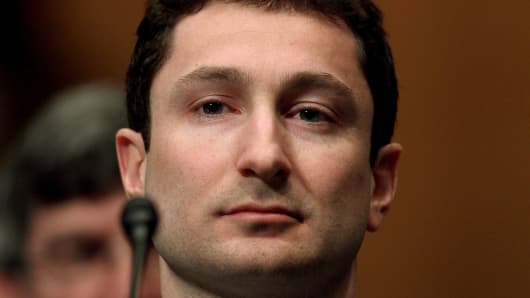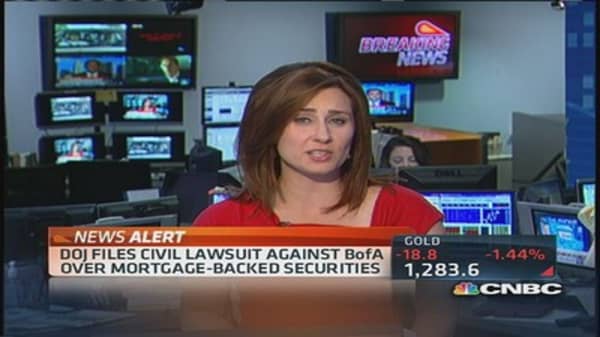That's not an outlandish argument. One of the investors in the deal was ACA Management, which helped select the portfolio of mortgages for the deal. ACA was regarded as an expert in that sort of thing. Its was sophisticated and rumored to be competent, with years of experience investing in mortgage bonds. The idea that ACA would not do a deal because some hedge fund mostly known for M&A arbitrage was taking an opposite position seems almost silly.
But the jury did not think so. They were convinced by testimony offered by one of ACA's executives that she definitely would have wanted to know Paulson was short the deal and definitely believed that Paulson was a long investor buying the equity tranche.
(Read more: The Love Song of Fabrice Tourre).
This is likely going to be the model for the government's case against Bank of America. The government says the bank falsely claimed the loans backing a January 2008 mortgage bond met the bank's underwriting standards. It also says Bank of America failed to tell investors that many of the loans backing the bond came from its "wholesale" business, which it claims the bank knew was producing low-quality mortgages.
Bank of America denies these charges. It says that investors in the deal had access to loan information. They were big sophisticated institutions. No one was actually misled.
In other words, Bank of America sounds a lot like Fabrice Tourre.
What the government probably will do is produce witnesses from the companies that invested in the 2008 deal, who will say things like, "Of course I thought they were performing loan-level due diligence." And "I definitely would have thought twice about investing in the deal if I'd known about the performance record of the wholesale loans."
Market professionals may scoff at this line of argument. But the jury is unlikely to include many market professionals. And if they are anything like the Tourre jury, Bank of America could be in for more trouble than it thinks.





